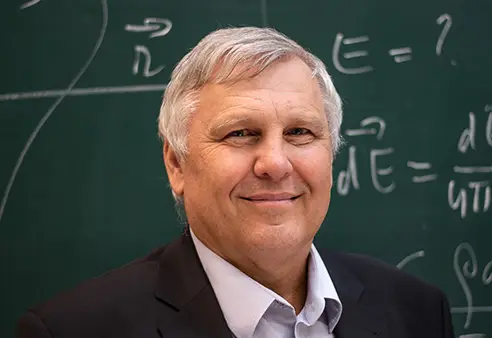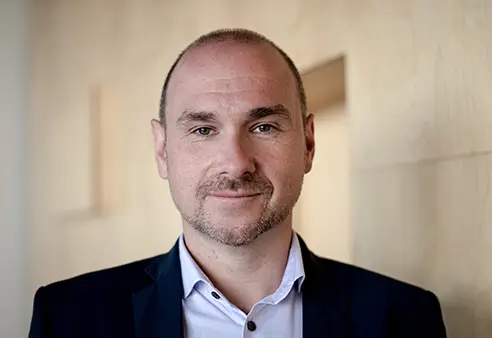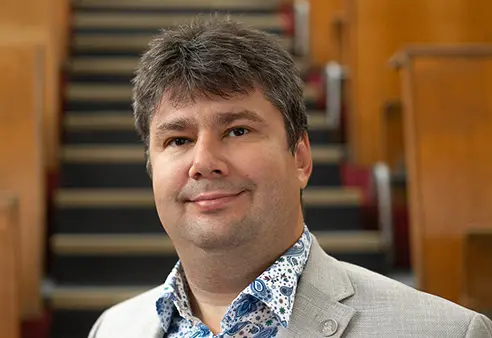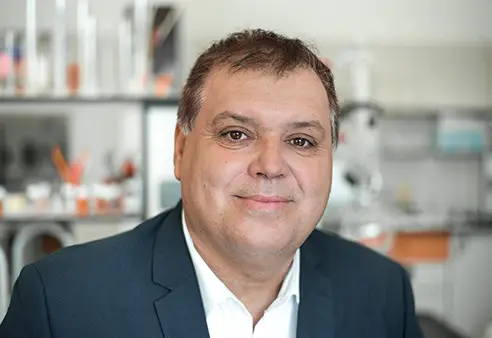People are increasingly using their cars at the expense of buses, trams and trolleys. Prof. Ing. Jozef Gnap, Ph.D, the head of the Department of Road and Urban Transport at the Faculty of Operation and Economics of the University of Žilina, considers this to be an unfavourable trend, which causes traffic to collapse repeatedly, as well as ecological problems in cities. This is why, his research is focused on improving transport services, sustainable mobility plans and reducing the environmental impact of transport.
"I prefer to work on projects in which the proposed measures are implemented in the shortest period of time possible," admits Jozef Gnap, adding that he mostly considers the public tenders announced by self-governing regions and cities, but also cooperates with the commercial sphere. For example, as the person in charge, he created a plan for transport services in the Bratislava region using an integrated transport system, the first two stages of which have already been implemented. He is the co-author of the methodology for calculating the benefits of renewal of the vehicle fleet in public transport to reduce emissions, which was used by the Transport Company of the Town of Žilina, when replacing their old trolleys and buses. Last year, they completed a complex renewal of its vehicle fleet, with a significant part of the city fleet now consisting of trolleys, electric buses and hybrid buses.
As for the commercial sphere, Jozef Gnap also takes part in research in the field of Logistics 4.0, which is concerned with the digitisation of logistics systems, i.e. the use of information technology, automation, intelligent systems and the like. He deals with the calculation of the economic benefits of self-driving trucks for the transport of components, that move around the production and logistics halls on their own without human intervention. For steelworks of U.S. Steel Košice, he has proposed a safer way of securing cargo during transport, and the logistics of entry and exit in order to reduce the time spent by trucks on the company's premises. "Although I was the person in charge in most cases, it was always a team effort. Without the help of colleagues, I would not have been able to achieve adequate results.“ notes Jozef Gnap.
Participation in research projects, which are usually based on specific market requirements, forces him to build on the latest scientific knowledge and trends in the field of transport and logistics. At the same time, he transfers them into study programs and subjects of which he is the guarantor. In this context, he points out that it is beneficial for students to be involved in scientific research during the course of their studies and to learn to work with scientific databases in order to be able to easily find work after graduation. "In the age of the Internet, it's all about motivating students to obtain and use validated information. It can't just be about passing an exam. They have to be able to use what they’ve learnt.” emphasizes Jozef Gnap, adding that he is motivated by the young people craving for knowledge.
Lectures from professional subjects, which he teaches, are fully focused on practical knowledge. Full-time graduates will usually appreciate what they’ve learnt only after they’ve started to work. In the context of lifelong education, the situation is simpler, because students know how to use the acquired knowledge in practice, so he is, for example, a guarantor of a very successful lifelong course Freight Forwarding-Transport Expert, that has been accredited not only by our Ministry of Education, but also by the international federation of freight forwarders and logistics, FIATA.
He tries to motivate students to do scientific research by selecting topics for their bachelor's, master's and dissertation theses that are both innovative and usable in practice in the short term. He often participates in solving partial tasks in projects, where he acts as the person in charge. "In order to be able to involve a student in a specific research programme, I always call them up and discuss the topic to check for understanding. If I see that they do not identify with the topic, I would rather adjust the assignment or give them a completely new one. It doesn't make sense to do something a student is not convinced of on a personal level." emphasizes Jozef Gnap.



